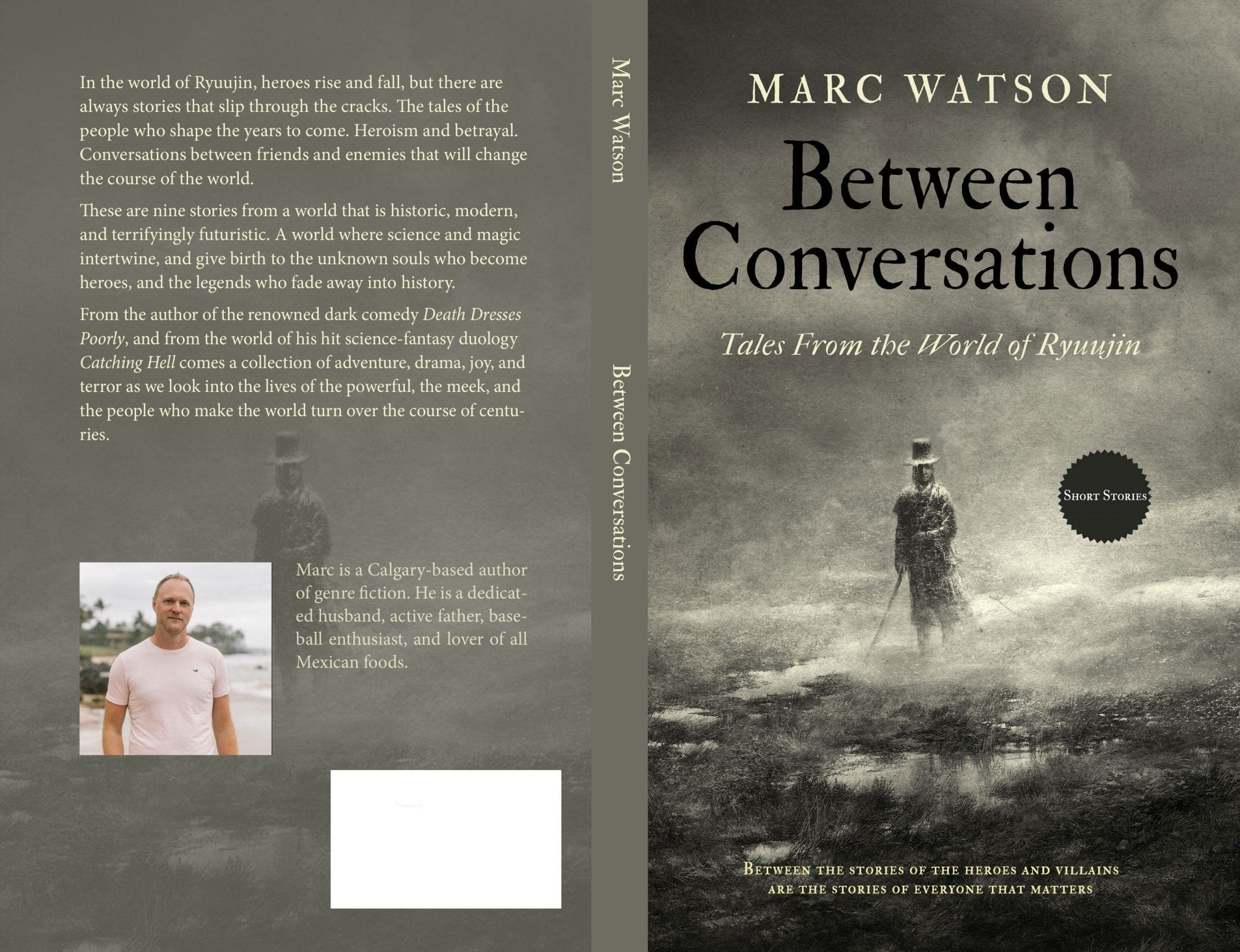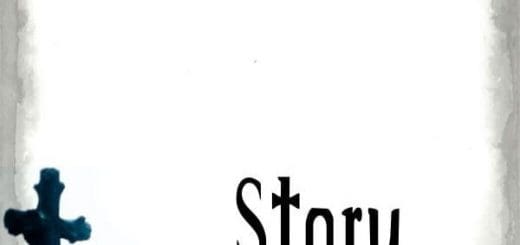Guest Post: The NaNoWriMo Problem By Marc Watson

The NaNoWriMo Problem
By Marc Watson
I’d like to offer an opinion that likely flies in the face of a lot of the things you’ve read about the craft of writing: writing prompts and word goals can be harmful, and run the risk of being creatively abusive.
Writing goals and prompts can absolutely be an effective method of motivating a lapsed author back into a proper habit-formed writing routine. Check almost any social media group regarding writing and you’ll find an individual declaring their 3000-word a day goal was passed! Or maybe it wasn’t reached and the rest of the community heralds the accomplishment or consoles the failed attempt with upbeat sentiment and praise. Don’t get me wrong, sentiment and praise are incredibly useful and inspiring, but the machine of the writing goal itself can absolutely be harmful.
Writing is like parenting; if there was just one way to do it there would only be one book on how and we’d all walk away with a copy. However, just as a story or poem can be as individual as a snowflake, so to can the person who wrote it. One needs to find the method that works for them and roll with that. One needs to accept that a great story, one really worth telling, may take personal sacrifice and struggle that could very easily be uncomfortable for the author. It may take an ungodly amount of patience. This fact, particularly in new authors, seems to be lost at times.
But why do I say it can be harmful, or creatively abusive (which seems like shock-writing but hear me out)? Through my own experience, I’ve let a story simmer if I didn’t like where it was going. Maybe it meant I had to come back to it later. Once or twice I’ve abandoned perfect acceptable stories because at some point I realized I didn’t have the time or talent to really tell the story I wanted to tell. Could I have rushed it and put out something perfectly acceptable? Absolutely, but how happy would I have been?
A rushed story runs a very high risk of being undercooked. Maybe it will work! An undercooked steak can still be tasty, and some people like that meat bloody! I like to say that there’s an audience for every word ever written, but maybe you have an audience that wished for medium or well-done. Or maybe you’re making chicken, and now surprise! Everyone has salmonella.
If you want to put out the best work you possibly can, a creative endeavor you can be really proud of, what will rushing it, or pushing your creativity, or forcing your hand bring you? I’m certain it will bring you a story you can sell and print, but will it absolutely be the story you wanted to tell? You may get steak, but you run a much higher risk of chicken.
I’d like to address NaNoWriMo specifically, an internet-born writing prompt contest that runs through our circles every November. There are variations throughout the year, but let’s focus on this one.
The goal is 50,000 words in a month. Daunting, but absolutely possible. That’s only 1,667 words a day! Get to those keyboards and write that dream novel or book of poetry you’ve yearned to put out into the world!
…Unless you work full time, or are a single parent. Maybe you’re a member of a perfectly nuclear family, but the kids have soccer and your spouse goes away and you’re on your own for a day or two. Maybe you just don’t write well in the evenings, or mornings, or lunch breaks. Your rhythm may be interrupted by life. Suddenly the words from days you’ve missed pile into the ones you have available. But this is your dream and this is how you’ll do it!
…But now it’s the 15th of November and you’re only at 18,000 words. Do you celebrate this amazing accomplishment, or lament the fact that you’re so far behind? 18,000 words of anything is a joyous event, but will you appreciate it?
I’ve created this perfectly reasonable scenario and ended up with an author who runs the risk of being disappointed or depressed or, worst of all, stifled with what many would consider success. How motivated is that author now? How likely are they to rush and push themselves to get to the finish line? I’m not saying they can’t or shouldn’t. It is absolutely possible to get there, to shake off the anchors and sprint. There are those that live for that pressure, and come out stronger for living through it. The creative fire cooks their food exactly how they like it, and how their audience likes it as well.
And yet, there are those that run the risk of getting run over by the expectation machine. Those that see the success of others and measure it against themselves regardless of how healthy or realistic that is. Never fool yourself into thinking that art doesn’t have its own culture of keeping up with the Joneses. Sure, maybe that author you like reached their goal, but do they live your life? Do they live in your brain and struggle with your struggles? No, and it can absolutely be harmful to put yourself up against them. Some do even if they fight it. And that’s where the harm comes in. That’s where creativity gets abused. That’s where the fire that cooked the previous author’s steak to perfection ended up burning your house down with you in it.
It is absolutely alright to not have a writing goal. Maybe you wrote 5000 words in a day. Astonishing! Maybe it was 500. Great! Maybe it was 50, or 5. Maybe it was none because the world doesn’t stop just because you want to write something. If you really have a story worth telling, do not be afraid to write it in your own time. It may take years. Or it may take weeks. Poll a room full of one hundred authors on how they make time to write and you’ll likely get one hundred different answers. It’s also just as likely that not one of them would work perfectly for you, because you are not them, and you shouldn’t try to be.
I’m not saying avoid writing prompts and challenges and NiNoWriMo. Try them if you like. Tweak them. See what sticks and what you can throw back. They are the loud and the easily celebrated. There is no contest for the author who took twenty years to finish their first novel, but their accomplishment is just as strong and valid as the one who took twenty days in a feat of finger flying fury. Neither of them is right, and that’s a truth lost on so many. Although I’d say I see it a lot more in new writers and young, fresh faces, I can’t say the veterans are totally immune either. As I said, each story is unique, and maybe the one you’re writing can’t be told by adhering to the styles that have previously brought you success. Maybe this one needs to simmer. Is it not somewhat foolhardy to assume every adventure into our creative selves will come out the same?
We all want success, regardless of what we see that success as. No one’s success is any more valid than another’s. The writing collective, the group hive-mind, is an inexhaustible resource for us all, but the sexy ideas aren’t always the right ones for you. Opening your mind to every possibility, even if it’s an uncomfortable one, is the surest way to get a story you can be proud of.

In the world of Ryuujin, heroes rise and fall, but there are always stories that slip through the cracks. The tales of the people who shape the years to come. Heroism and betrayal. Conversations between friends and enemies that will change the course of the world.
These are nine stories from a world that is historic, modern, and terrifyingly futuristic. A world where science and magic intertwine, and give birth to the unknown souls who become heroes, and the legends who fade away into history.
From the author of the renowned dark comedy Death Dresses Poorly, and from the world of his hit science-fantasy duology Catching Hell comes a collection of adventure, drama, joy, and terror as we look into the lives of the powerful, the meek, and the people who make the world turn over the course of centuries.
Marc Watson
Author
 Marc Watson is an author of genre fiction of all lengths and styles. His works include the novels Death Dresses Poorly, Catching Hell: Journey, and Catching Hell: Destination, as well as having short stories in the collections Enigma Front 5: The Stories we Hide, and A Land Without Mirrors. His newest release, a collection of science-fantasy short stories Between Conversations: Tales From the World of Ryuujin, is available now! He began writing at the age of 15 and continues to be a part-time writing student at Athabasca University. He has been published on flash fiction site www.101words.org (find his stories here) as well as comedy site www.thecorrectness.com.
Marc Watson is an author of genre fiction of all lengths and styles. His works include the novels Death Dresses Poorly, Catching Hell: Journey, and Catching Hell: Destination, as well as having short stories in the collections Enigma Front 5: The Stories we Hide, and A Land Without Mirrors. His newest release, a collection of science-fantasy short stories Between Conversations: Tales From the World of Ryuujin, is available now! He began writing at the age of 15 and continues to be a part-time writing student at Athabasca University. He has been published on flash fiction site www.101words.org (find his stories here) as well as comedy site www.thecorrectness.com.
Marc lives in Calgary, Alberta. He is a husband and proud father of two. He is an avid outdoors-man, martial artist, baseball player, and lover of all Mexican foods. He can be found at online www.marcwatson.ca, as well as on Facebook at www.facebook.com/marcwroteabook, and on twitter at @writewatson.
- About the Author
- Latest Posts
Stuart Conover is a father, husband, published author, blogger, geek, entrepreneur, horror fanatic, and runs a few websites including Horror Tree!












